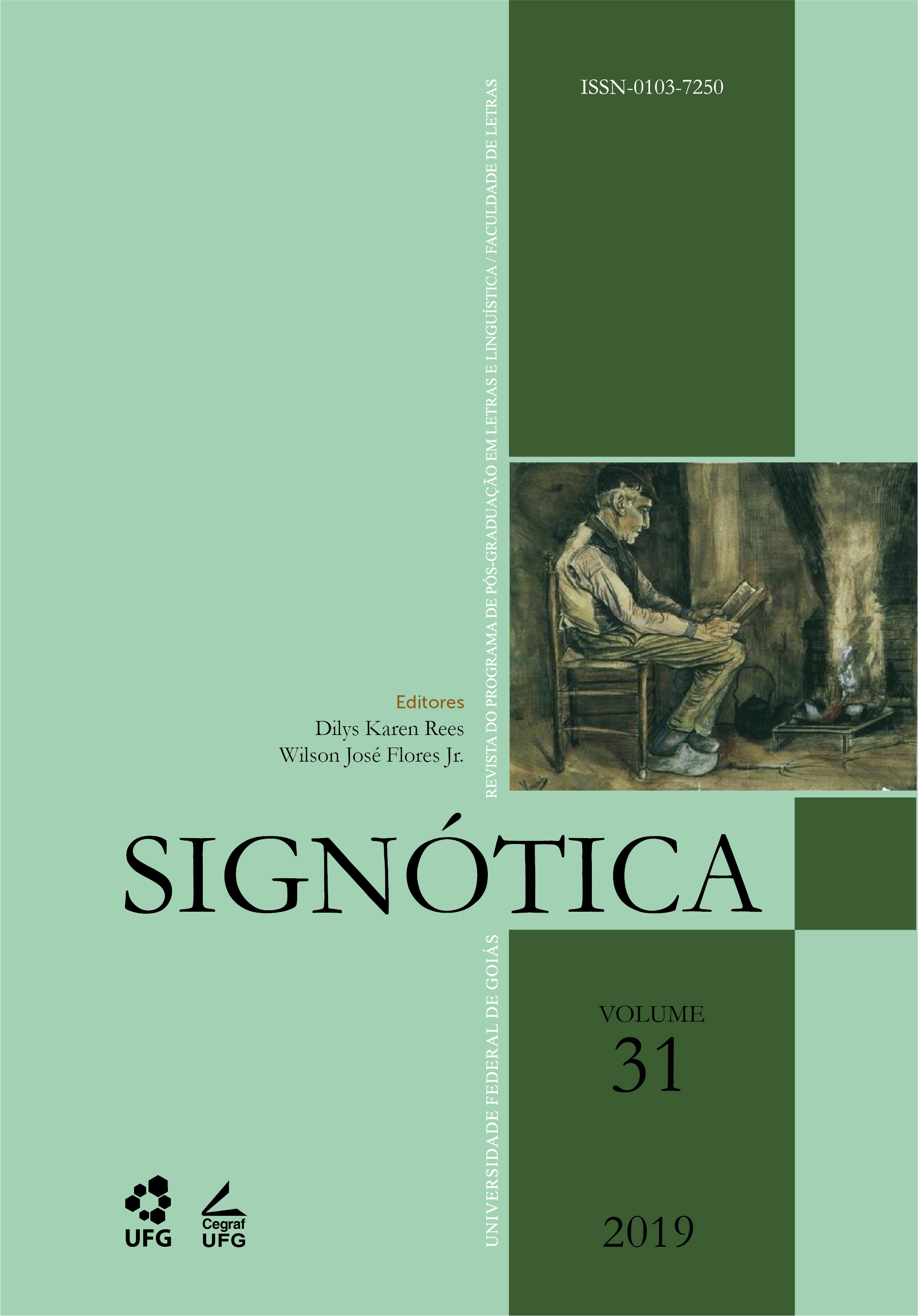Lukács reads Novalis: the notion of “destiny”
DOI:
https://doi.org/10.5216/sig.v31.55634Keywords:
Romanticism, Destiny, Goethe, Bourgeois society, RenunciationAbstract
This work traces the variations and concomitances in the ways in which György Lukács interpreted the romanticism, in general, and the work of Novalis, in particular, in his pre-Marxist and Marxist periods. The hypothesis is that, beyond some “superficial” changes, Lukács always reads, in Novalis, a failed critique of the degraded reality of the bourgeois world, to which the romantic poet, unwittingly, grants him the status of destiny. The ultimate intention is to contribute to the understanding of why, for Lukács, Goethe represents the positive pole against Novalis.
Downloads
References
GOETHE, J. W. Los años de aprendizaje de Wilhelm Meister. In: Narrativa. Ed. M. Siguán. Madrid: Espasa, 2006. p. 131-732.
GOLDMANN, Lucien. Introducción a los primeros escritos de Georg Lukács. In: LUKÁCS, G. Teoría de la novela. Barcelona: Edhasa, 1971. p. 171-203.
JUNG, Werner. Das vormarxistische Werk. In: Georg Lukács. Stuttgart: Metzler, 1989. p. 33-80.
LUKÁCS, György. Escritos de Moscú. Ed. M. Vedda. Trad. M. Vedda y M. Koval. Buenos Aires: Gorla, 2011.
______. Teoría de la novela. Trad. M. Sacristán. Madrid: Editora Nacional, 2002.
______. Selected Correspondence 1902-1920. Selección, edición, trad. y notas de J. Marcus y Z. Tar. Introd. de Z. Tar. Nueva York: Columbia U.P., 1986.
______. El alma y las formas y Teoría de la novela. Trad. de M. Sacristán. Barcelona: Grijalbo, 1975.
______. Goethe y su época. Precedido de Minna von Barnhelm. Trad. M. Sacristán. Barcelona: Grijalbo, 1968.
NOVALIS. Himnos a la noche / Enrique de Ofterdingen. Trad. E. Barjau. Barcelona: Altaya, 1981.
______. Werke in drei Bänden. Ed. R. Samuel. Múnich: Hanser, 1978.
SCHILLER, Friedrich; GOETHE, J. W. “La más indisoluble unión”. Epistolario completo 1794-1805. Ed. y trad. de M. G. Burello y R. Rohland. Buenos Aires: Miño Dávila, 2014.
CARUGATI, Laura; GIRON, Sandra. Prólogo. In: SCHLEGEL, Friedrich. Conversación sobre la poesía. Trad. L. Carugatti y S. Girón. Buenos Aires, Biblos, 2005. p. 9-27.
VEDDA, Miguel. La sugestión de lo concreto. Estudios sobre teoría literaria marxista. Buenos Aires: Gorla, 2006.
Downloads
Published
How to Cite
Issue
Section
License
Author (s) authorize Signótica to publish an article, if accepted, signing its contribution as original and not submitted to another publisher for publication. In case of acceptance and publication, Signótica's articles are Creative Comons BY-NC-ND (Attribution + Non-Commercial + Non-Derivatives)





1.png)





